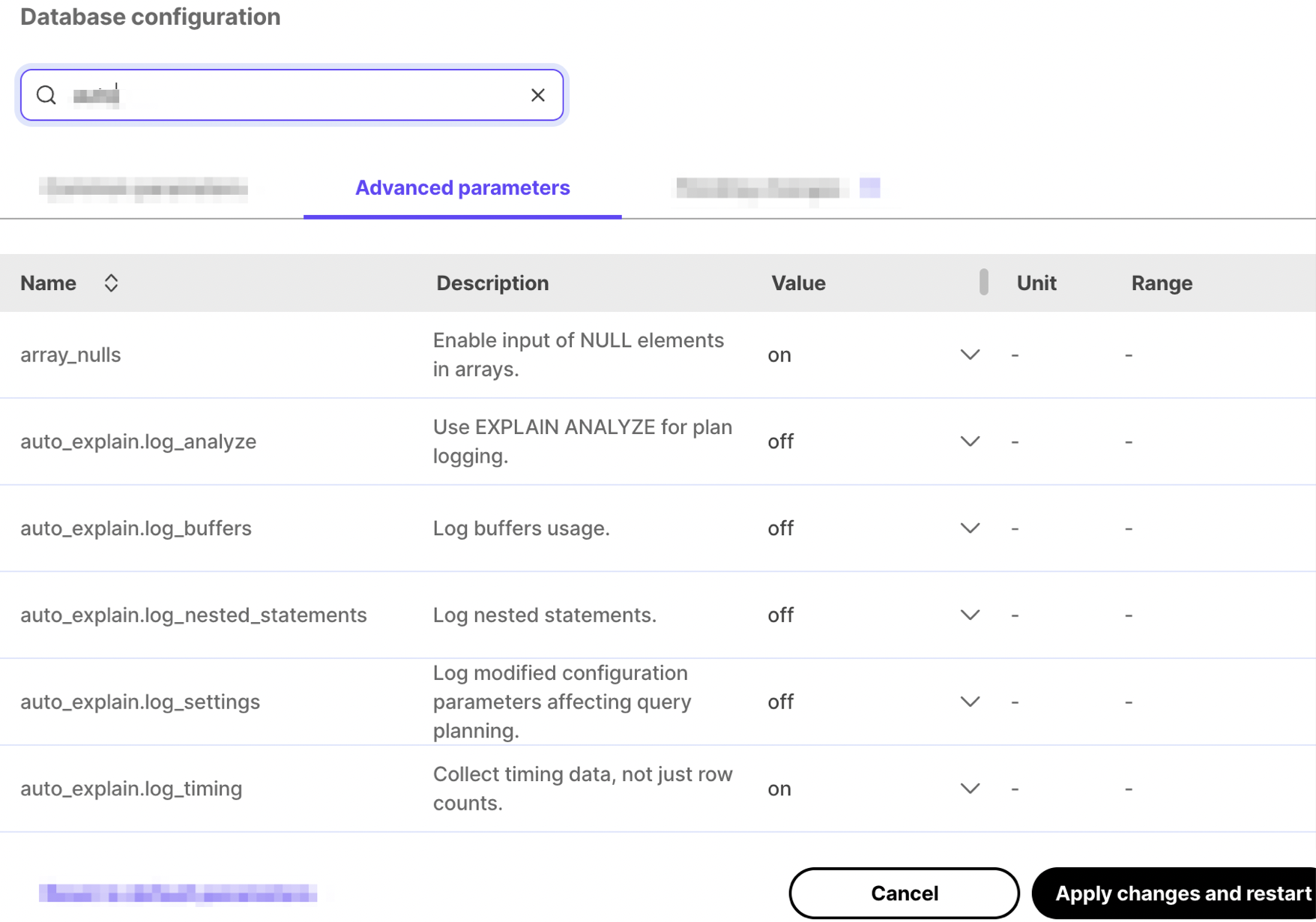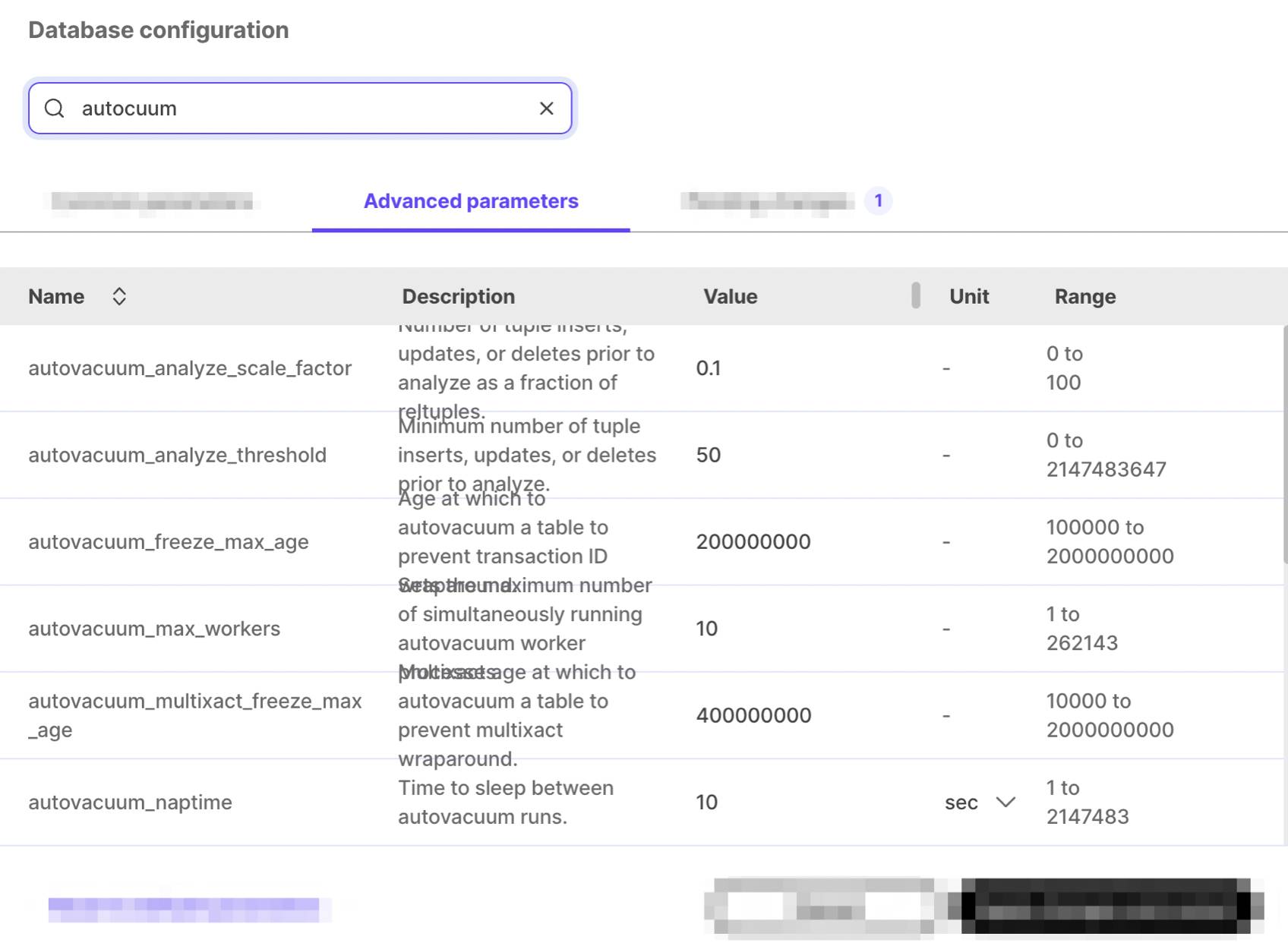It is possible to configure a wide variety of service database parameters by
navigating to the Advanced parameters tab under the Database
configuration heading.

The advanced parameters are displayed in a scrollable and searchable list:

As with the basic database configuration parameters, any changes are highlighted
and the Apply changes, or Apply changes and restart, button is available,
prompting you to confirm changes before the service is modified.
To create more than one Timescale database, you need to create a new service for each database. Timescale does not support multiple databases within the same service. Having a separate service for each database affords each database its own isolated resources.
You can also use schemas to organize tables into logical groups. A single database can contain multiple schemas, which in turn contain tables. The main difference between isolating with databases versus schemas is that a user can access objects in any of the schemas in the database they are connected to, so long as they have the corresponding privileges. Schemas can help isolate smaller use cases that do not warrant their own service.
Keywords
Found an issue on this page?
Report an issue!